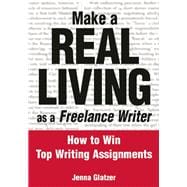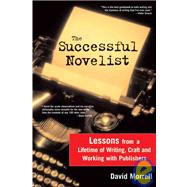Full Time Passive Income x 2 , No Freelancing, and a $15,000 December?
Hello everybody! I have to say, I think the Europeans have it right as far as the minimum of six weeks paid vacation per year. I'm back from 4 weeks and change of traveling, and another week of just being lazy and enjoying re-acclimating myself to winter weather once again :) While it is definitely very cliched and maybe even passe (that's an annoying fashionista word, isn't it?), this time of year it simply makes sense to not only look back on the past year, but also look forward to making your goals and New Year's resolutions for 2011.I'm no different, as I've been spending the last week in the exhausting task of recording every top 10 page keyword ranking for every passive income article, website, URL, Hubpage, Squidoo lens, blog posts, or what have you that I have online. When combined, this is over 1,200 pieces at some level. While some are much more valuable and thus much more time-worthy of working on then others (Associated Content articles are pretty much ignored and Squidoo lenses are way down vs. HubPages, all of which are lower than my 100% own blogs), I like having numbers and I want a clear list of everything there is to work on.
This is part one of my 2011 goals: Taking away all excuses to delay or procrastinate because I don't know what to do next. The beauty of this long master list is that if I don't know what to do, I take a look at the next keyword on the list and just keep going. There's no chance now for me to waste time or get frustrated because I'm drawing a blank. Basically I'm preempting one of the major issues I've run across throughout my writing career, and one that because of that I'm sure to run into again.
I'm a firm believer that the reason most people don't achieve their goals isn't because it's not possible - not even the most overconfident of us knows what we're truly capable of - but because making the goal is only part one. The even more important part is planning out in specific and very detailed, easy to follow steps how you are going to do it.
One great example of this I've already seen online is Kidgas's hub on tripling his online income in just one year. What does he do right?
- He sets a goal that is ambitious but realistic, one that is going to force him to work but isn't going to become an anchor because it's unrealistic.
- He clearly identifies the best way to get from point A to point B (tripling traffic)
- He clearly lays out his plan of how to get there, not with a general "write x number of hubs," but an even better weekly plan of one Saturday, one Sunday, and one during the week - as well as some specific steps on building backlinks, since this is a crucial part of ranking in the search engines and getting more traffic
So for this post I'm going to do two things:
- I'm going to announce my own goals (public pressure and all to keep me on track) for the next year and how I intend to get to them, including some major potential pitfalls I can see.
- I'm going to give some simple steps/advice to Kidgas (not picking on him or singling him out - but I know he reads this blog and I'm eager to help him hit his goals; I'm a firm believer in paying it forward) that can help improve his backlinking strategy to help him reach his goals.
But first, my writing and passive income goals for 2011. The subtitle of this post, while appearing somewhat sensational, is actually pretty accurate. My three main goals for 2010 when it comes to writing and passive income are:
- To no longer have to freelance write for clients at all - and I mean NADA
- To have two full-time incomes (in my mind app. $36K a year) from passive income by the end of the year: one from just my own efforts and one from my brother's and my business
- To have a $15,000 month (minimum) in December solely from Amazon's Affiliate Program
So how to get there? Obviously I need much more passive income to make up for the freelancing income. The first step for me is counter-intuitive. I want to take on more work the first three months of the year to save up an extra 3 to 4 months of expenses - something I've never had before. With that much saved up I can take the next 4 months off from freelancing, only take on the easy, high-paying, and fun jobs that come along (if I so choose) and use all that extra time to focus hard core on the passive income side of the equation.
I'm very confident that if I had 4 months where I didn't have to worry about making any income at all, and ALL of my attention was focused on the residual build up, then the progress on that front would be exponential compared to right now.
To do this I plan to spend 4 hours a day writing for Demand Studios, 3 hours a day writing for jobs I win from Guru.com, and 1 hour a day finding new work. I know intermittent work will come in from some former employers, but I choose not to count on it and anything I get is just bonus.
Now for #2: Getting not only one, but two full time passive incomes by the end of 2011. This definitely might be considered over-ambitious considering I haven't fully earned one yet, but I'm feeling good about this. Part of it is from the fact that the business my brother and I are partners in did very well in December - about $1,700 well and counting from only online sources. Yes, the Christmas season throws the numbers way off since a lot of that is Amazon, but it still shows what is possible, and we got started late and were not anywhere close to putting in 40 hour weeks...if only we had.
One of my first steps is making the SEO master list of all my sites and pages, and the company's sites and pages. There are more than enough good topics, keywords, and online real estate that I think I would already be making at least one, if not both, incomes if all these pages, sites, or articles ranked in the top 5 (preferably top 3) in the search engines. So getting there is step one, and with the voice software, I can do 10-12 articles a day for backlinks pretty easily now, in fact in three hours or less - so 300-400 backlink articles a month on the really low side won't hurt at all. If I spend 10 hours every Saturday doing nothing but backlink articles, I can do upwards of 40 to 50.
Next is to create a minimum of 200 new hubs for both my personal account as well as the business account based on continued keyword research, and using the optimal layout we found for selling Amazon products, in addition to still converting for AdSense. These will all get backlinks, including from revenue sharing sites like Xomba, InfoBarrel, and Squidoo. I also need to get my butt in gear and get some of those e-books and online reports done like I've had on the "To Do" list for over a year now and make sure all of my domain names have active and hosted websites - which means a lot more work to get up from the 25% or so where I'm sitting at right now.
This means going back to old pages to "properly" monetize them based on what I've learned the past two years and also being very selective about what I spend my time on. I'm very much naturally a "scatter-shot" sort of person as opposed to the "sniper focus" and my efforts the past few years have reflected that: very broad but rarely very deep. To complete this goal, I don't have any other option. I need to focus heavily on the pages that are showing the most return, the most potential I can actually turn into earnings in a reasonable time, and the projects with the highest upside.
I'm also going to "cheat" and count 2011's Amazon earnings as part of the "average" for the year.
Finally, I've had some really cool ideas for e-books and online courses that I've been working on just a little bit throughout the past year, and it's time to get those out. While not completely passive, they will definitely help with no longer having to freelance and over time some of them might become very profitable passive income streams. One of the appeal of e-books is if you can get an audience and provide information that really is worth $40 a pop versus 50 cents a click or $1 a commission.
Which brings us to #3: $15,000 December. This I actually think is very achievable. Basically I didn't heavily figure out Amazon until this year, and it's been mind-blowing for me. Using only HubPages (so think 60% of what we could have earned) and starting on the 15th of August, we made 67 HubPages, each with an average of 3-5 articles backlinking to each one. Considering there's 116 days between then and Christmas, this isn't that much work, especially for two people. In fact, we pretty much stopped doing anything the first week of November.
The end results? By changing which keywords we shot for slightly and testing to find the best layout for hubs to sell Amazon products, our company (which right now is the two of us just working together) earned $2,783 in commissions, well over half of which came in December. My personal account jumped from $10 a month to $70, and tallied nearly $200 for December, and mostly just from me revising and changing 5-10 hubs I already had to make them more Amazon friendly.
At the end of the day we could have done so much more - even doubled the work without feeling all that stressed out or rushed. So knowing that, and having figured out how to take advantage of Christmas sales and how to design HubPages and sites that actually convert for Amazon, with an entire year to go making $15,000 in December 2011 does not seem that far fetched at all...especially since it's not like this year's hubs disappear. They'll rank even higher by next year.
The goal here is 2 campaigns per month, and at least 2 backlink articles per hub or per website page per month aiming at Amazon, with a huge push in July through October 2011 when we'll have a much better idea of what's hot and what's not during the Christmas season, and what words will be achievable versus which won't be. This goal is actually the one I consider the easiest of the three based on experience and my confidence in what I know and how to do it.
So those are my goals and how I intend to achieve them. For anyone looking at making goals for the next year, I'm personally a fan of aiming for challenging goals that force you to "step up" to achieve them. Getting to new places and reaching new goals means pushing yourself to accomplish things you haven't done before.
Next, hopefully this helps pay it forward and helps Kidgas (who seems to be a cheerful and thoroughly outstanding individual - you can check out his "My Online Income" blog here) reach his goals with some advice, which is always my two cents and nothing more, that hopefully will help his backlinking efforts and in achieving his goals over the next year. And actually, these can be used by anyone, so anyone else go ahead and take notes and enjoy!
Well I guess we could just go back to my old blog post on backlinking for beginners, but since none of us are going to do that, let's move on to just a few basic steps that Kidgas could take to make his back linking more effective.
By all means, I agree with bookmarking at Xomba, Snipsly, and SheToldMe. This is a good start. I would also say, if you don't have an Ezinearticles account, get one! Regardless of what people have been saying for 5+ years, the demise of Ezinearticles is greatly exaggerated. Even 2-3 Ezinearticles (don't use the exact keyword you're shooting for in the title - use a related one) per hub can add 4-6 good solid backlinks. Learning the "a href" language to get backlinks in your author box is not difficult, and I get solid traffic directly from my Ezinearticles...and if they're willing to click once, they're willing to click again once they get to my page.
So I obviously encourage adding Ezinearticles to the mix. You can use the bookmarking sites on these to add extra "juice" to your links.
The next step would be to look at InfoBarrel if you haven't already done so. This is a very good AdSense and Amazon revenue sharing site that also allows you to have backlinks in your "signatures" of the article. InfoBarrel articles tend to rank fairly well, and you can make money off of them, as well.
Finally, in each new hub make sure to link to other recent hubs that you produce. This is a very smart move, as those "internal links" can actually be an enormous help in outranking other pages.
This is an extremely basic "how to get started," for Kidgas or whoever else needs it, but even by adding just a few Ezinearticle, InfoBarrel article, or other links you might be surprised how quickly your rankings in the search engines improve. HubPages is an incredibly strong site, and it often doesn't take very many backlinks to push the hubs up in the rankings for targeted keywords. Once you get the hang of this and start seeing the results, take a look at the backlinking for beginners post I made as it will give you a list of other places to get backlinks from (including sites who have an AdSense share program) and the default order in how I do things if that type of structure helps you out.
If you haven't tried it already, down the line consider looking at a Keyword Academy Membership (this is an affiliate link), which last I check offered a free trial month. The tools and teaching they offer is incredible and has shaved months off of my journey, if not more. The regular price is $33 a month, so it is a commitment, but it's not a bad idea to sign up when you have some time to watch the teaching videos, get a feel for their tools, do some research and get some backlinks, then if you can't afford $33 a month you can decide whether it's worth it for you to come back at a later time. Definitely hold on this until you know you have time to look at the videos and take notes: it's incredible information and even if now you can only do the free trial run, do it. What you learn will speed up the passive income process immensely.
So hopefully that will help you out to really get the most out of your backlinking efforts. If you have any questions, please don't hesitate to leave a comment and ask. You were brave enough to mention your goals, so I want to be able to help you reach them and then some.
As to everyone reading, hope your holidays are great, feel free to share your goals or thoughts in the comments section, and I really encourage you to challenge yourself to really go after those big time goals in 2011. Cheers!










